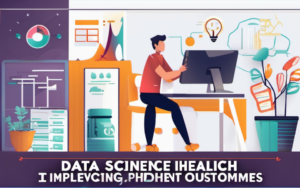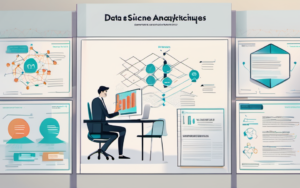The field of data science has exploded in recent years, driven by the ever-increasing availability of data and the development of powerful new tools and techniques. But the roots of this exciting field go back much further, and we can trace its development through the history of data science competitions. These competitions have played a pivotal role in shaping the field, fostering innovation, and attracting talent. Let’s take a journey back in time and explore the origins of these exciting challenges that have become a cornerstone of data science.
Remembering the First Data Science Competitions
The Dawn of Data Science Competitions
While the term “data science” was not widely used in the early days, the concepts and techniques behind it were already being applied in various fields. Early competitions, often referred to as “data mining competitions,” emerged as a way to tackle complex problems and showcase innovative solutions.
These early competitions were often held within academic institutions or research labs, with participants focusing on tasks such as pattern recognition, image classification, and text analysis. While the scale and scope of these early challenges might seem modest compared to today’s competitions, they laid the groundwork for the future of data science competitions.
Early Platforms and Challenges
The early 2000s saw the emergence of platforms specifically designed for hosting data science competitions. One of the earliest examples was the KDD Cup, which was launched in 1997 and has since become a highly prestigious competition in the field. These platforms provided a centralized space for participants to collaborate, share ideas, and compete on a range of challenging problems.
Early data science competitions often focused on real-world problems with practical applications. This helped to drive innovation and attract individuals from diverse backgrounds, including researchers, students, and industry professionals.
The Impact of Early Competitions
The impact of early competitions cannot be overstated. They provided a platform for researchers to test and validate new algorithms, leading to significant advancements in areas such as machine learning, natural language processing, and computer vision. These competitions also served as a catalyst for the development of new tools and technologies that are now widely used in the field of data science.
Key Competitions that Shaped the Field
Netflix Prize (2006-2009)
The Challenge
The Netflix Prize, launched in 2006, is widely regarded as one of the most influential data science competitions in history. The challenge was to develop an algorithm that could improve the accuracy of Netflix’s movie recommendation system by at least 10%. This simple objective attracted thousands of participants from around the world, leading to a flurry of innovative solutions.
The Impact
The Netflix Prize had a profound impact on the field of data science. It showcased the power of collaborative problem-solving and spurred advancements in recommendation systems and machine learning. The winning team’s approach, which involved combining multiple algorithms, became a standard practice in the field.
Kaggle’s Rise (2010-Present)
Early Competitions
Kaggle, founded in 2010, quickly became the dominant platform for data science competitions. Its user-friendly interface, diverse range of challenges, and competitive environment attracted a large and diverse community of data scientists. Kaggle’s early competitions focused on areas such as image recognition, natural language processing, and predictive modeling.
The Evolution of Kaggle
Over the years, Kaggle has expanded its offerings, introducing new competition formats, incorporating real-world datasets, and fostering a vibrant community of learners and practitioners. The platform has become a valuable resource for both aspiring and experienced data scientists, offering opportunities to learn, network, and hone their skills.
The Evolution of Data Science Competitions
From Code to Insights
While early competitions focused primarily on the accuracy of the algorithms, the emphasis has shifted towards providing meaningful insights and understanding the data. This has led to the rise of competitions that focus on tasks such as data visualization, storytelling, and explainable AI.
Data science competitions are no longer just about building the best model; they are about extracting valuable insights from data and communicating them effectively to stakeholders.
The Rise of Explainability and Ethics
As data science has become increasingly integrated into various aspects of our lives, the importance of ethical considerations and explainability has become paramount. This has led to a growing number of competitions that emphasize ethical data practices, responsible AI, and transparent decision-making.
Data scientists are now expected to not only develop accurate models but also to explain their decisions and ensure that their work aligns with ethical principles.
The Future of Data Science Competitions
Data science competitions are constantly evolving, driven by technological advancements, emerging trends, and the growing demand for data-driven solutions. In the future, we can expect to see even more specialized competitions focused on niche areas such as healthcare, finance, and environmental science.
These competitions will continue to play a vital role in pushing the boundaries of data science, fostering innovation, and attracting the brightest minds in the field.
The legacy of these competitions is one of innovation and collaboration, paving the way for a future where data science plays a crucial role in solving some of the world’s most pressing challenges. As technology advances and the demand for data-driven solutions continues to grow, data science competitions will remain a key driver of progress in this exciting and rapidly evolving field.




